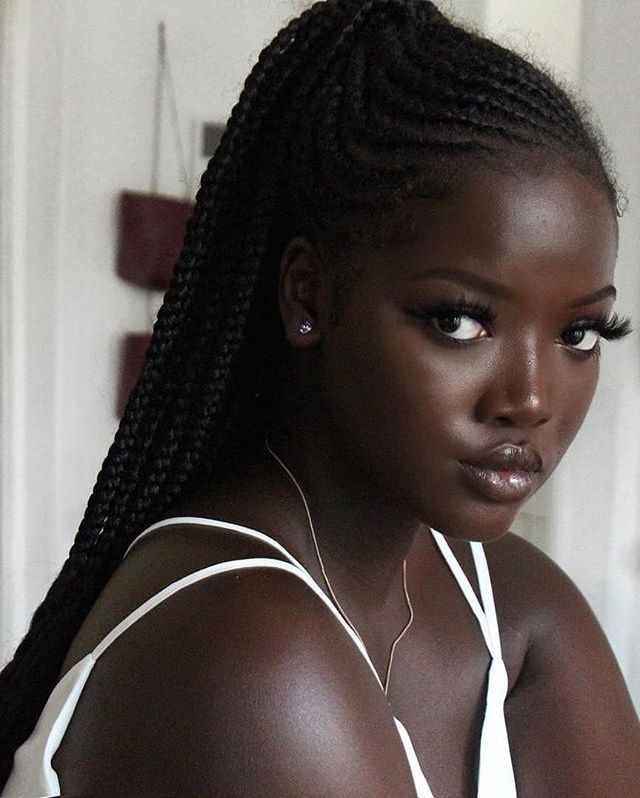Jump to a Specific Section
- 0.1 Introduction
- 0.1.1 1. Dress Colors for Dark Skin
- 0.1.2 2. Brown Clothing for Deeper Complexions
- 0.1.3 3. Flattering Dresses for Dark Skin Tones
- 0.1.4 4. Fashion Tips for Dark Skin and Brown Dresses
- 0.1.5 5. Dressing for Your Skin Tone
- 0.1.6 6. Best Brown Shades for Dark Skin
- 0.1.7 7. Dark Skin Fashion Trends
- 0.1.8 8. Styling Brown Dresses for dark skin tones
- 0.1.9 9. Dark Complexion Outfit Ideas
- 0.1.10 10. Enhancing Dark Skin with Brown Clothing
- 0.1.11 11. Choosing the Right Dress for Your Skin Tone
- 0.1.12 12. Brown Dress Color Coordination
- 0.1.13 13. Dark Skin Fashion Advice
- 0.1.14 14. Complementing Your Complexion with Brown Attire
- 0.1.15 15. Wearing Brown Dresses For Dark Skin Tones
- 0.2 Selecting the right Skin Color and Brown dress for dark skin tones:
- 0.3 Neutral Undertones:
- 1
Introduction
When it comes to finding the ideal brown dress for dark skin tones, understanding how to work with your unique complexion is key. Brown dress for dark skin tones offers a wide range of options that can beautifully complement your natural beauty. In this article, we’ll explore flattering dresses and range of Brown dress for dark skin tones and provide valuable fashion tips for enhancing your look with brown dresses.

1. Dress Colors for Dark Skin
Choosing the right dress color for your dark skin tone is a crucial starting point. While many shades can work beautifully, brown dress for dark skin tones is often an excellent choice.
2. Brown Clothing for Deeper Complexions
Brown dress for dark skin tones come in various shades and tones, making them versatile for different occasions and personal styles. Whether you prefer earthy, warm tones or cooler, darker hues, brown dresses can be flattering options for individuals with dark skin.
3. Flattering Dresses for Dark Skin Tones
It’s essential to choose dresses that enhance your natural beauty. Dark skin tones are wonderfully complemented by brown dresses that harmonize with your complexion.
4. Fashion Tips for Dark Skin and Brown Dresses
To make the most of your brown dress, consider the following fashion tips tailored to dark skin tones:
Dark skin tones look stunning in vibrant and bold colors. Don’t be afraid to wear rich jewel tones like emerald, green, sapphire blue, deep purple, or ruby red. These shades can make your complexion pop. Neutral colors such as beige, camel, taupe, and chocolate brown can create a chic and timeless look. Earthy tones like terracotta, olive green, and mustard yellow also work well.
5. Dressing for Your Skin Tone
Understanding your skin tone is the foundation of a great wardrobe. Darker complexions can be warm, cool, or neutral undertones, and this knowledge can help you select the best brown shades.
6. Best Brown Shades for Dark Skin
For warm undertones, caramel, chestnut, and rust are excellent choices. Cooler undertones can opt for chocolate, espresso, or mahogany. Neutral undertones can experiment with various brown dress shades to find their perfect match.
7. Dark Skin Fashion Trends
The fashion world is increasingly embracing diversity, and dark skin is at the forefront of the latest fashion trends. Brown dress for dark skin tones is no exception and are gaining popularity for their ability to accentuate deeper skin tones.
8. Styling Brown Dresses for dark skin tones
Styling your brown dress for dark skin tones can elevate your entire look. Accessories, makeup, and even your choice of shoes can make a significant impact.
9. Dark Complexion Outfit Ideas
Looking for outfit ideas that complement your dark complexion? Brown dresses can be paired with a variety of accessories and outerwear to create stunning ensembles.
10. Enhancing Dark Skin with Brown Clothing
Brown dresses not only enhance your skin’s natural beauty but also allow you to express your personal style.
11. Choosing the Right Dress for Your Skin Tone
Dark dresses create a striking contrast against dark skin, which can make the outfit stand out and draw attention to your features. This contrast highlights your complexion, making it appear more radiant and alluring.
12. Brown Dress Color Coordination
Dark dresses exude elegance and sophistication. When paired with dark skin, they create a harmonious and refined look that’s both chic and timeless. The combination of deep, rich colours and dark skin tones often results in a visually appealing, polished appearance.
13. Dark Skin Fashion Advice
Dark colors, including black and deep shades of brown, navy, or charcoal, have a slimming effect. They can create an illusion of a more streamlined and elongated silhouette, which can be particularly flattering on any skin tone, including dark skin.
14. Complementing Your Complexion with Brown Attire
Dark dresses provide a perfect canvas for showcasing accessories. Bold and colorful jewelry, scarves, or shoes pop against a dark backdrop, allowing you to experiment with different accessories and add your unique flair to the outfit.
15. Wearing Brown Dresses For Dark Skin Tones
Brown Dresses for dark skin tones have a timeless quality. They are less likely to go out of style, ensuring that you can wear them for many years to come, making them a wise investment for your wardrobe.
16. Matching Makeup with Brown Dresses for Deeper Skin Tones
Wearing a dark dress that complements your dark skin tone can boost your confidence and make you feel empowered. When you feel good in what you’re wearing, it shows in your posture, attitude, and overall presence.
Selecting the right Skin Color and Brown dress for dark skin tones:
Before diving into the world of brown dresses, it’s essential to understand your undertone. Dark skin tones can have warm, cool, or neutral undertones. Knowing your undertone will help you select the brown shade that complements your complexion best. We will guide you to choose your complexion and ways for styling.

Warm Undertones: If you have warm undertones, your skin might have a yellow or golden undertone. Brown dress for dark skin tones like caramel, chestnut, and rust can beautifully enhance your complexion.
Cool Undertones:
Cool undertones typically have hints of blue or purple. Cool-toned dark skin can look stunning in cooler shades of brown, such as chocolate, espresso, or mahogany.
Neutral Undertones:
If you have neutral undertones, consider yourself lucky, as you can pull off both warm and cool shades of brown. Experiment with various brown dress shades to see which complements your skin tone best.
Why Does Dark Brown Dress for Dark Skin Tones Looks Attractive?

Dark complexions and brown dresses often referred to as deep or rich skin tones and dark colored dresses, are widely considered attractive for a variety of reasons. Beauty standards vary across cultures and individuals, but there are some universal aspects that make dark complexions appealing to many people:
Radiant Glow:
Dark complexions often have a natural radiance and glow. The melanin in darker skin provides a protective shield against harmful UV rays, which can result in healthier and more youthful-looking skin.
Distinctive Features:
Dark skin tends to highlight facial features, such as eyes, lips, and cheekbones. This can create a captivating and alluring look, drawing attention to the unique qualities of an individual’s face.
Contrast:
Dark complexions can create a beautiful contrast when paired with certain clothing color’s, makeup, and accessories. This contrast can make the skin appear even more vibrant and attractive.
Cultural Significance:
In many cultures around the world, dark skin is celebrated and admired. It is often associated with cultural richness, heritage, and a deep connection to one’s roots, which can add to its allure.
Diversity: In an increasingly diverse and multicultural world, appreciation for different skin tones has grown. Many people find beauty in diversity, and dark complexions are a representation of this diversity.
Timelessness:
Dark complexions have been considered attractive throughout history. In various ancient civilizations, including African, Indian, and Mediterranean cultures, dark skin was often associated with beauty, strength, and fertility.
Confidence:
People with dark complexions often exude confidence and self-assuredness. Feeling comfortable and proud of one’s skin tone can make a person appear even more attractive.
Resilience:
Dark skin is known for its resilience to the sun and environmental factors. This resilience can translate into a perception of strength and health, which can be seen as attractive qualities.
Representation:
Increased representation of dark complexions in media and the fashion industry has helped challenge traditional beauty standards. Many individuals now see dark skin as a symbol of beauty and authenticity.
Personal Preference:
Ultimately, attractiveness is highly subjective, and personal preferences play a significant role. What one person finds attractive may differ from someone else’s preferences, and this diversity in preferences is what makes the world of beauty so rich and inclusive.
conclusion
In conclusion, dark complexions are considered attractive for a multitude of reasons, including their natural radiance, distinctive features, cultural significance, and the increasing appreciation for diversity in beauty. It’s essential to celebrate and embrace the beauty of all skin tones, as they contribute to the rich tapestry of human diversity and individuality.
